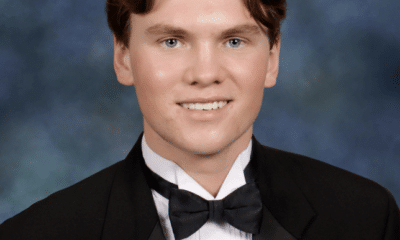Education
Paul Duke STEM student Teams Up with KSU & Curiosity Lab to Advance V2X Technology
Published
4 years agoon

Last year, Curiosity Lab and Kennesaw State University (KSU) entered a strategic partnership to advance research in vehicle-to-everything (V2X) technology applications. Led by KSU assistant professor of computer engineering Billy Kihei, the first collaboration focused on open-source Dedicated Short-Range Communications Units (DSRC).
Nicknamed the “Owl Box,” these DSRC units can track data such as how fast vehicles are moving, roadway specifications, GPS data and much more, creating opportunities for startups, entrepreneurs, and municipalities/road authorities to test and explore emerging V2X technologies.
KSU selected Curiosity Lab as one of its primary test locations for the Owl Boxes due to the Lab’s autonomous vehicle test track and commitment to supporting and facilitating innovation.
While Dr. Kihei’s research team has primarily included KSU undergraduate students over the last year, Curiosity Lab also connected a Paul Duke STEM High School student with Dr. Kihei. Paul Duke is Curiosity Lab’s STEM partner and is just a mile from the living lab.
Last year, at the start of her senior year of high school, Jordan McEntyre started working with Dr.Kihei. Jordan was taking an AP Research course and reached out to Curiosity Lab to find a research mentor as part of her coursework. Curiosity Lab connected her with Dr. Kihei, who served as her mentor in V2X technology.
Dr. Kihei sent Jordan an Owl Box to configure and tasked her with writing applications for the Owl Box to solve a specific problem. After months of development, Dr. Kihei and Jordan then took her Owl Box on the road at Curiosity Lab to test her applications in a real-world environment.
“The Owl Boxes allowed me to work with open source technology and make a functioning product out of it, which is an extremely useful experience to have,” said Jordan. “Field testing at Curiosity Lab proved that my program works, but certain factors that came up while testing in this environment gave me ideas to improve my program. I would love to implement those ideas and test it again in a real-world environment.”
Dr. Kihei applauded Jordan’s work as she learned the values of patience and planning.
“It was a long and challenging process for Jordan working with open source technology, but it is important for researchers to be exposed to and work through those types of real-world problems,” said Dr. Kihei. “For example, while a researcher may have an idea to implement, your technology doesn’t always play nicely. It’s not always straightforward.”
Dr. Kihei and Jordan plan to publish a paper together soon, and Jordan plans to start at KSU this year as a computer science major, concentrating on cybersecurity and software development.
“It is crucial for today’s technology leaders to support the education of the next generation of innovators,” said Betsy Plattenburg, executive director of Curiosity Lab. “Through our partnership with Paul Duke, Curiosity Lab is committed to providing Peachtree Corners’ youth with exposure to real world testing of intelligent mobility and smart city technology.”
Source: Curiosity Corner Newsletter
Related
Education
Paul Duke STEM High School Student Earns CGO Scholarship
Published
4 days agoon
May 2, 2025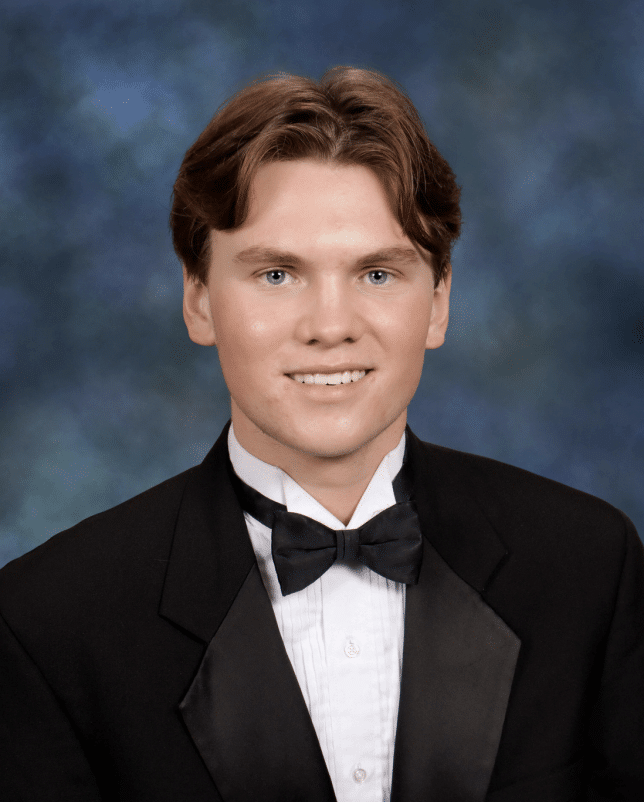
Cobb Global Outreach Inc. (CGO Inc.), a non-profit organization dedicated to enhancing financial literacy and educational opportunities, recently awarded three scholarships to metro Atlanta high school seniors, including one to Paul Duke STEM student, Baylor M. Brown.
The scholarship initiative underscores CGO Inc.’s commitment to empowering youth through financial education and support.
According to CGO’s social media pages, these outstanding students have shown incredible dedication and resilience in their academic journeys. “We are proud to support their continued success and look forward to seeing all that they will achieve!”
Scholarship details and impact
The scholarships provided by CGO Inc. are designed to alleviate financial barriers and encourage academic excellence among students pursuing higher education. Each scholarship recipient will receive financial assistance to support their educational endeavors, along with resources to enhance their understanding of financial management and literacy.
The scholarship recipients have demonstrated remarkable potential and a strong commitment to making a positive impact in their local community and beyond.
Bobby Cobb, CEO and founder of Cobb Global Outreach Inc., expressed enthusiasm about the partnership, stating, “We are honored to support the students … . By investing in their education and financial literacy, we aim to equip them with the skills necessary for a successful and financially secure future.”
Looking ahead
Cobb Global Outreach Inc. remains committed to expanding its scholarship programs and financial literacy initiatives. The organization plans to collaborate with additional schools and community partners to further its mission of closing the wealth gap and fostering economic empowerment among youth.
About Cobb Global Outreach Inc.
Founded in January 2021, Cobb Global Outreach Inc. is dedicated to educating middle and high school students about financial literacy. The organization believes that providing students with tools and resources related to financial literacy will help narrow the wealth gap and promote economic empowerment.
For more information, visit cobbglobaloutreachinc.com.
Related
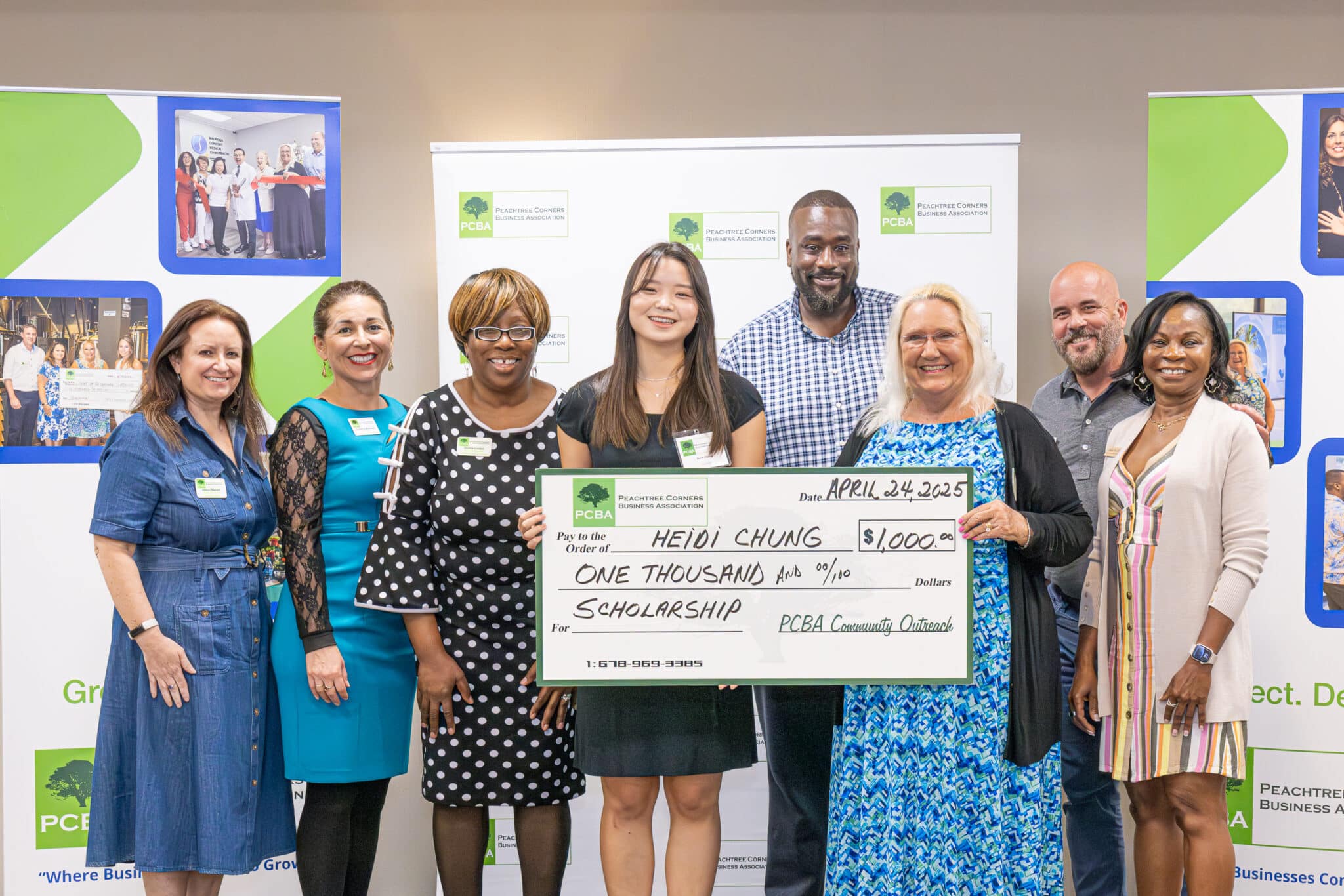
The Peachtree Corners Business Association (PCBA) awarded local high school senior, Heidi Chung, a $1,000 scholarship during their April 24 Business After Hours event. Heidi and her family were presented with the scholarship and introduced to the organization’s members and guests at the monthly gathering.
Heidi was accepted by several colleges and has selected the University of Kentucky to continue her education, pursuing a degree in nursing. When asked what lessons she has learned from her experiences volunteering and serving in the community throughout her life, Heidi commented, “I have learned that true leadership is about service, taking initiative and persevering through challenges.”
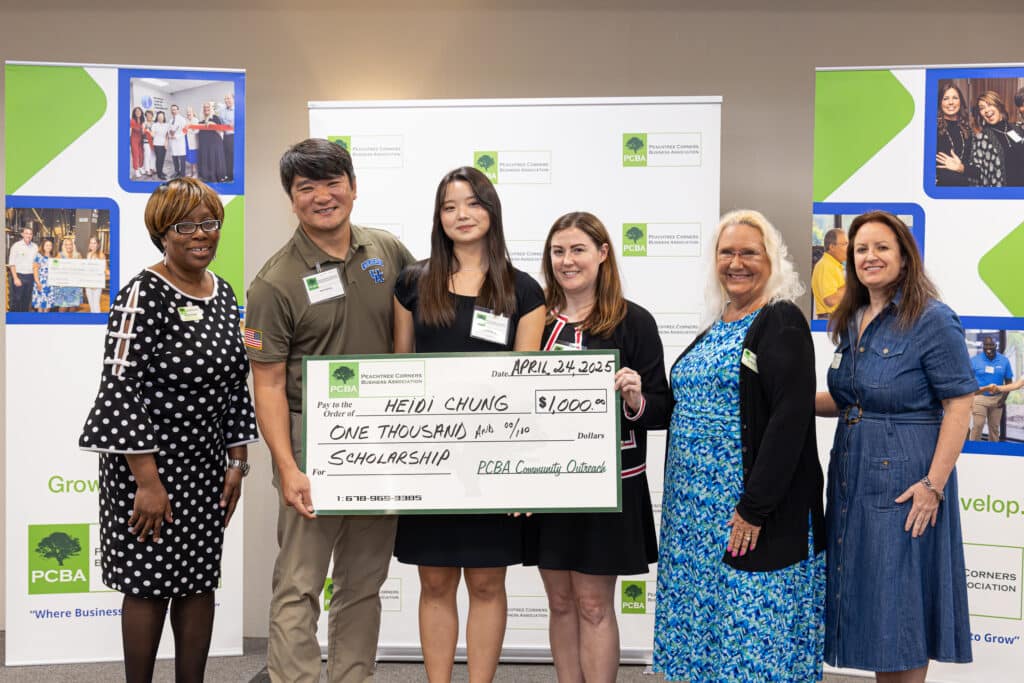
Scholarship Chair Donna Linden and Outreach Director Suzanna Martinez shared that the scholarship committee was impressed with Heidi’s many accomplishments, “whether she was organizing fundraisers, leading performance groups or helping athletes recover from injuries, Heidi demonstrated a positive impact on the community, as well as outstanding academic results.”
Funds for the PCBA Community Outreach Program are raised throughout the year from PCBA membership, sponsorship and an annual charity event. Donations and scholarships are awarded at PCBA’s monthly events so that members have the opportunity to learn more about the individuals and organizations.
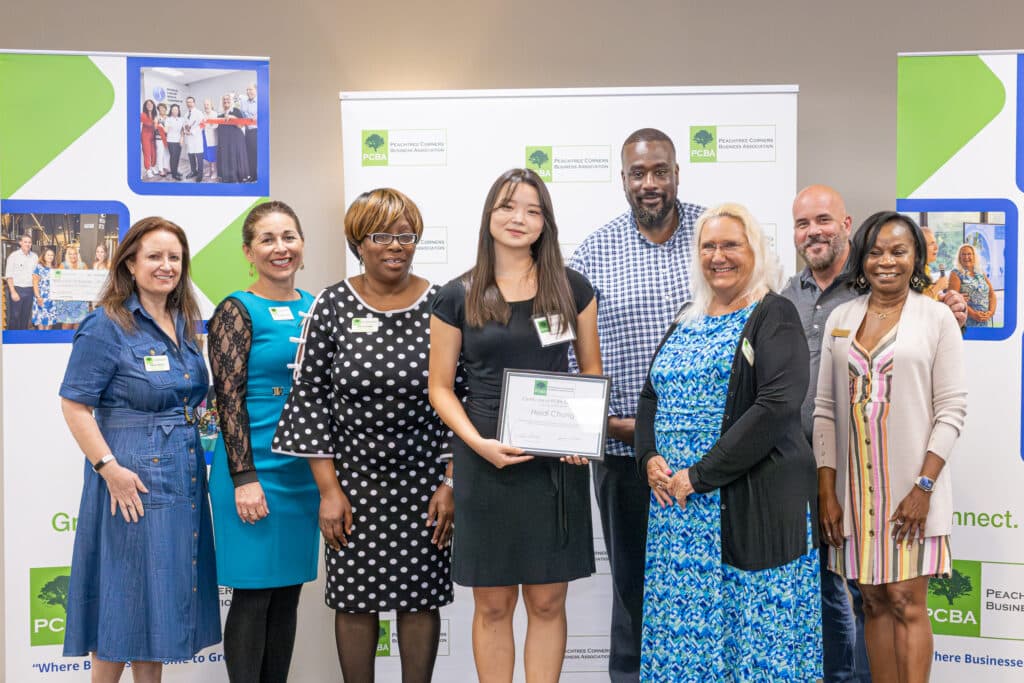
“We are so proud that the PCBA has … awarded 20 scholarships to outstanding future business leaders and donated in excess of $173,000 into our metro Atlanta community over the last 13 years,” stated Lisa Proctor, PCBA board president.
About Peachtree Corners Business Association
“Where Businesses Come to Grow,” the Peachtree Corners Business Association is a business membership organization that focuses on innovative approaches, programs, shared resources, community outreach and opportunities for member businesses and professionals to connect, develop, grow and prosper.
The PCBA is made up of businesses of all sizes and types who want to expand their reach and grow their business within Peachtree Corners and the greater metro Atlanta area.
For more information, call 678-969-3385, email membership@peachtreecornersba.com or visit peachtreecornersba.com.
Related
Education
GA Tech Launches First-of-its-Kind GT Atrium in Peachtree Corners
Published
1 week agoon
April 27, 2025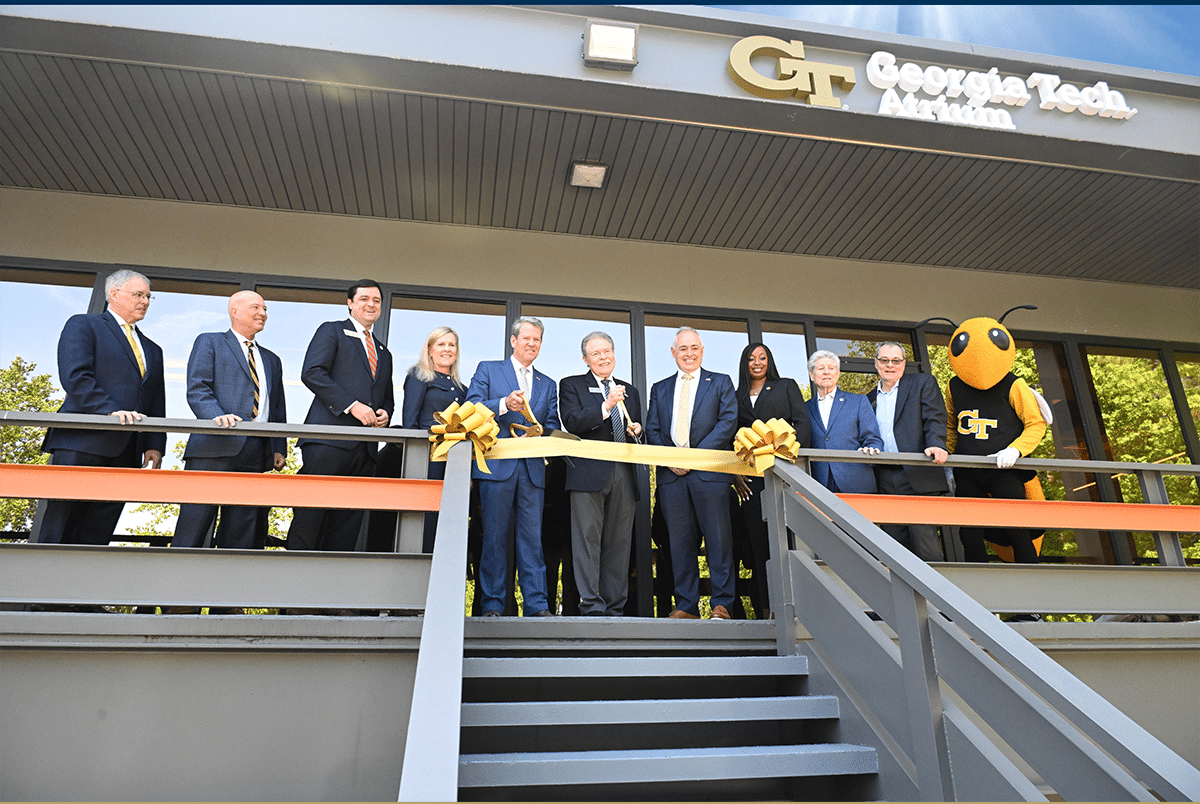
The adage “good things come to those who wait” could be true for Peachtree Corners city officials and administrators at the Georgia Institute of Technology.
After nearly a decade of planning, a vision for the technology-forward municipality and the higher education cultivator of innovation has come to fruition with the new Georgia Tech Atrium at Peachtree Corners’ Curiosity Lab.
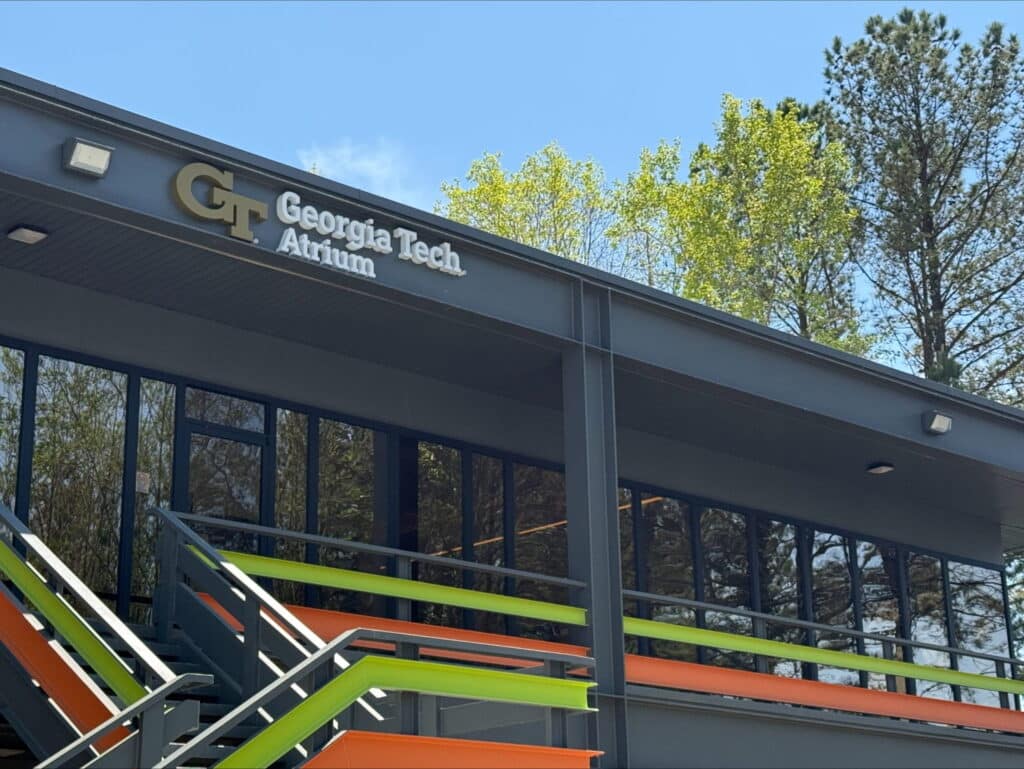
With 200 or so attendees present, Georgia Gov. Brian Kemp, Peachtree Corners Mayor Mike Mason, and Georgia TechPresident Ángel Cabrera cut the ribbon on this first-of-its-kind space.
“I actually came to this exact building with Georgia Tech’s former president in 2016 when we just began to think about what this partnership could be,” said Dene Sheheane, president of the Georgia Tech Alumni Association. “The wheels of higher ed turn slowly, so I’m excited to see it finally come together.”
The opening of the GT Atrium in Peachtree Corners is the first of many planned collaborations to come between the school and municipalities throughout the state and beyond.
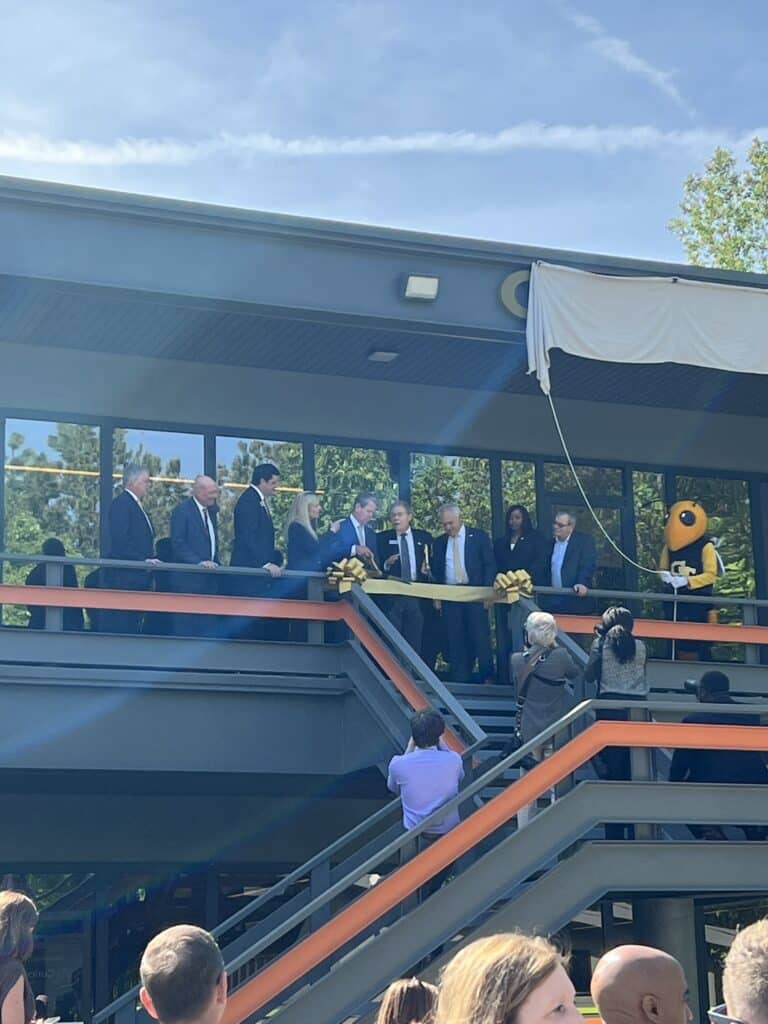
An initiative of the Center for 21st Century Universities at the Georgia Tech College of Lifetime Learning, each GT Atrium will offer a space for the institute’s faculty, staff, students, alumni and partners to advance their academic and professional interests in the country or region that it serves. It will provide tailored programs, event space, a study abroad base, co-working and co-learning spaces, as well as opportunities to engage and associate with Georgia Tech.
What purpose does the project serve?
Nelson Baker, interim dean of the College of Lifetime Learning agreed that Peachtree Corners was the right place to start the Atrium project.
“Support and leadership from cities like yours, that both fuel the growth and give our next generation of technology leaders what they need to lead their projects and to be successful, in many ways, is the ultimate expression of what a university, especially a research university like Georgia Tech, is all about,” he said.
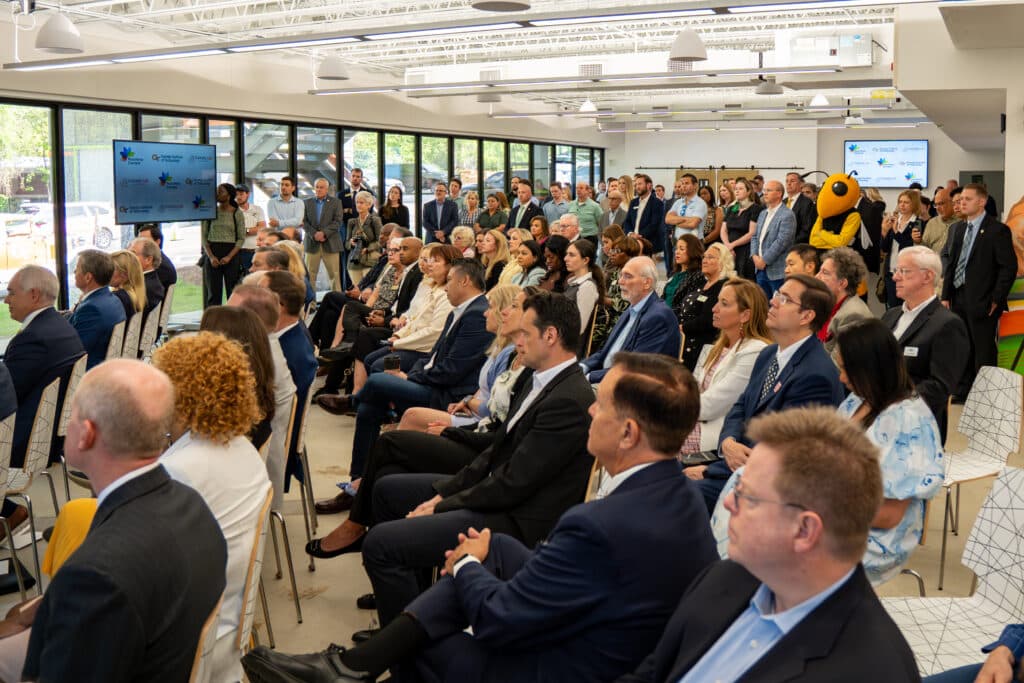
Baker went on to explain why such an endeavor is necessary.
“Today’s world is changing pretty rapidly, and one of the biggest changes is learning itself,” he said. “Today, people are living longer, they’re working longer and they’re changing jobs more often than ever before.”
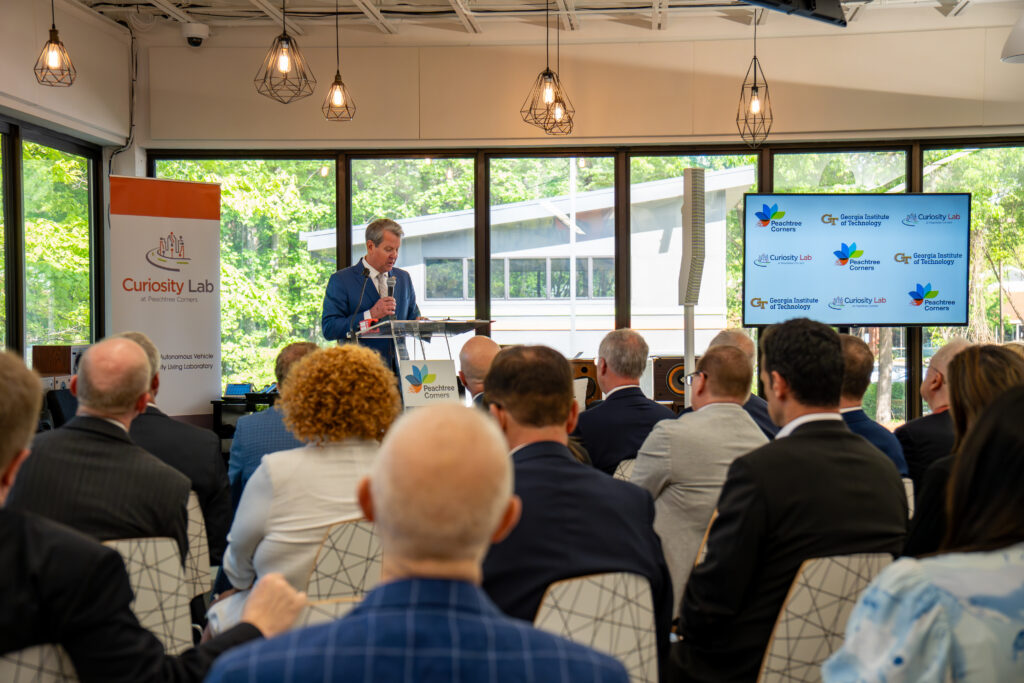
He added that they face broad, intense career and technological disruptions, and although a degree is a good foundation for many careers, the individual must continue to learn for as many as 50 years past graduation.
“How can a four-year degree last more than half a century in a person’s lifetime? At the same time, geographically dispersed companies and communities across our state need ways for workers to develop, to up-skill and re-skill,” he said. “Our universities and schools — all of our learning systems must adapt.”
Connecting with communities for lifelong learning
Instead of attacking the problem piecemeal, leaders at Georgia Tech sought to address the problem as a “coherent whole.”
“The institute set out to better connect to our communities, to be present, to expand access, amplify our impact and to tie it all together,” said Baker. “That’s how we got here today, with the first new college at Georgia Tech in 35 years and the first Georgia Tech Atrium meant to extend our campus into communities in new ways.”
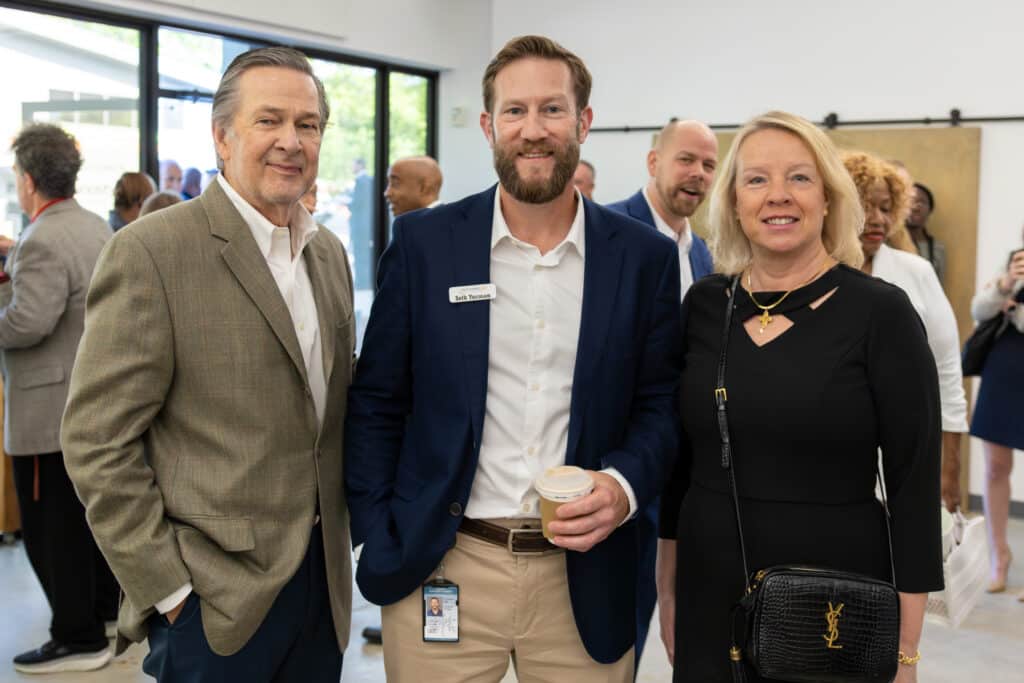
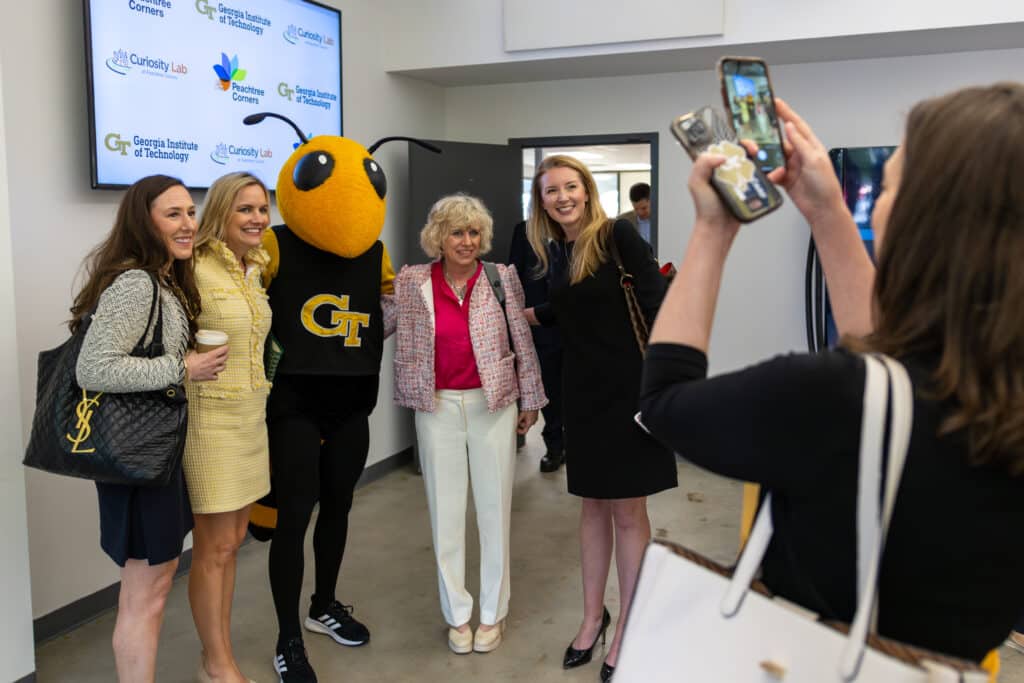
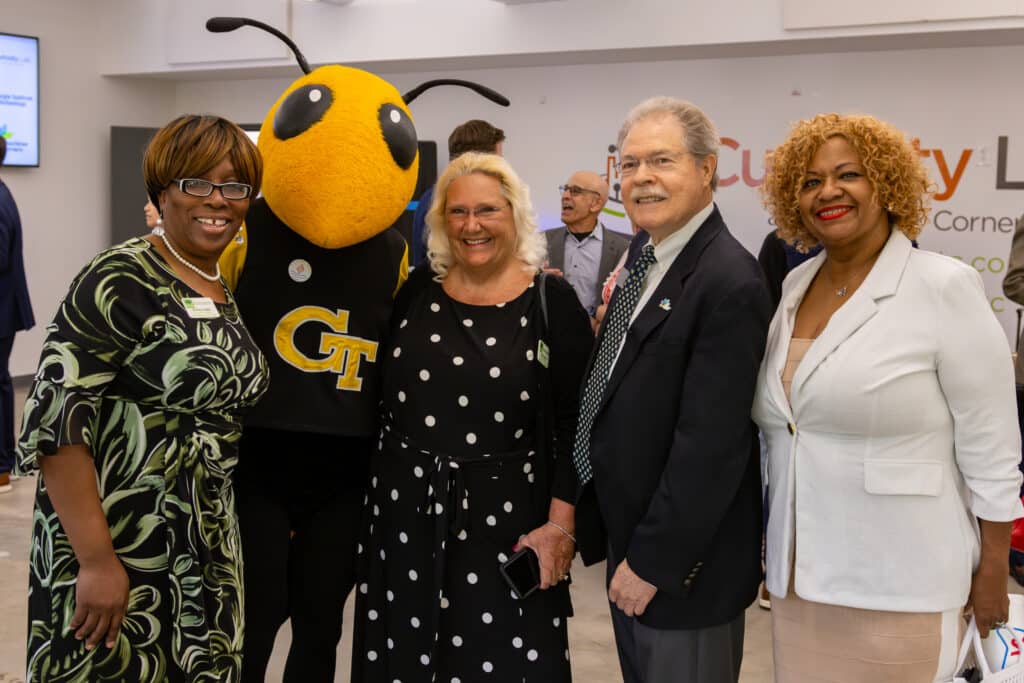
For a century, universities have been focused on research and study, on teaching and on founding colleges of education that improve the discipline of pedagogy and the transfer of knowledge, he added.
“The College of Lifetime Learning brings a new discipline to learning itself, empowering the person through research technology and a lifelong access to enable agency over one’s lives. It’s the other side of the equation — the person side,” he said. “Rather than influencing stages of learning separately, the College of Lifetime Learning comprehensively applies research and technology to empower people. We’re focused on operating through K-12, through research and through professional education. We build on the experiences across all stages of learning and are adding faculty to develop and teach in this new field.”
Empowering learners with access and options
Georgia Tech has also vowed to apply the practical technology and deep research to empower people with access, with options and with community.
“Ultimately, we hope to ensure expanded access to high-quality education so all learners, regardless of their background or the stage of life or career, have the opportunity to succeed, thrive and get ahead,” Baker said. “This will improve our system and carry the disciplines and knowledge across our state and world.”
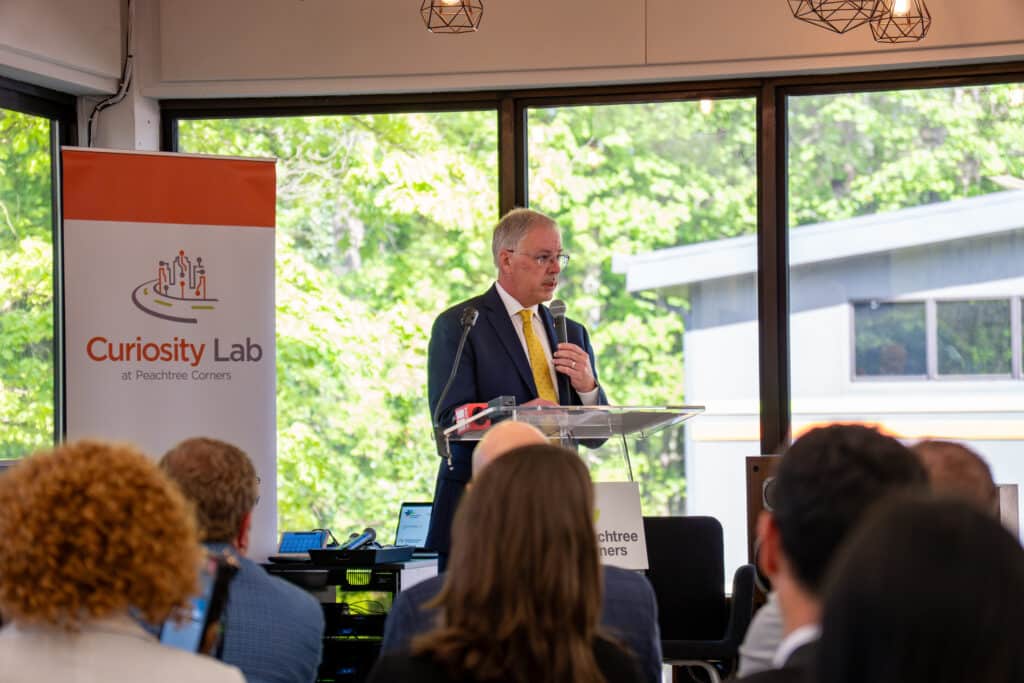
One vehicle to help do that is the GT Atrium — a reinvention of Georgia Tech’s physical presence on a global yet localized scale.
“Think of it as a piece of Georgia Tech, a communal space where we can contribute to the community, even as we serve our own learners and alumni,” he said. “Here we offer networking, upskilling and learning opportunities to communities.”
He reiterated that none of these perceived advancements would be possible without strong community support. The dream that started with Peachtree Corners founder Paul Duke continues.
Goals and growth
Georgia Tech President Cabrera was quick to point out that the institution doesn’t exist just for a few.
“We’re not the Atlanta Institute of Technology or the Buckhead Institute of Technology — we’re the Georgia Institute of Technology,” he said. “Our goal is to amplify impact, the value that we create for the state that we serve.”
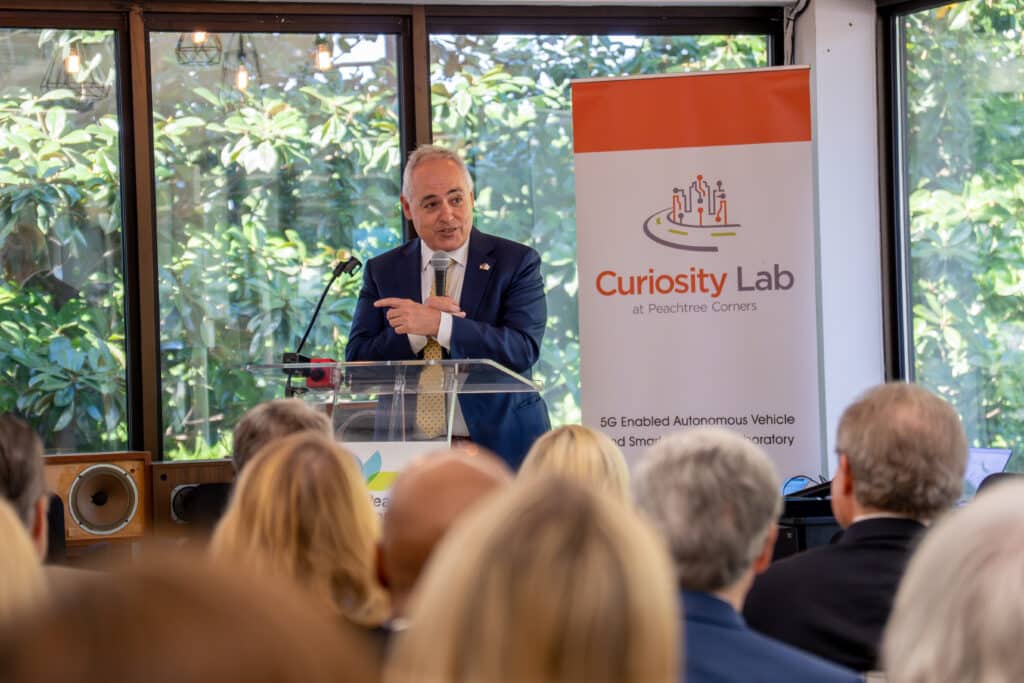
It’s no secret that Georgia Tech attracts — and produces — talent that researches and creates ideas that drive the innovation economy in this state. But it’s not going to rest on those accolades.
“We’re working on some big bets that seem a little overwhelming, but the crazy thing is, we’re delivering on them,” said Cabrera.
One goal is doubling the number of degrees awarded every year.
“We are almost two-thirds towards that goal,” he said. “We’re right now the fastest growing university in the country and … the largest university in the state. We’re the third largest recipient of federal grants for research in the nation.”
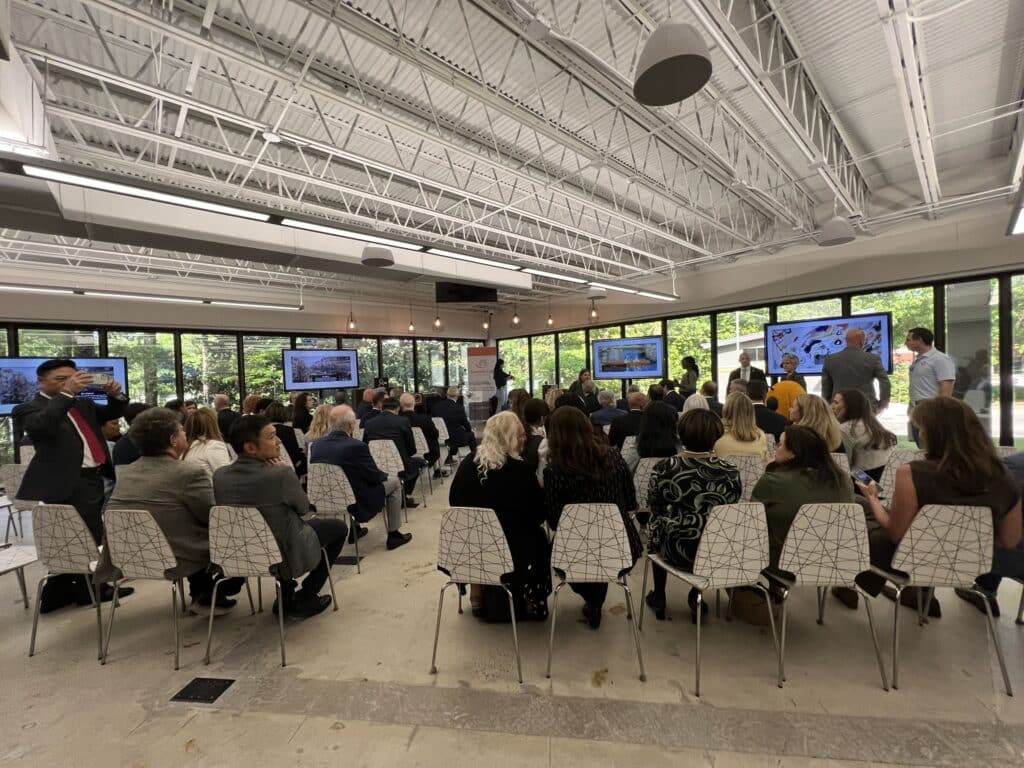
With those rewards, comes a great responsibility, he added.
“That’s a big deal because we all pay into the federal budget with our income tax. It’s only fair that we bring our fair share of those resources back here. And many of the ideas that we produce end up turning into innovation startups that activate the economy of our state,” he said.
A prototype that will work anywhere
Georgia Tech wants to continue to create one of the most thriving, exciting, energizing hubs of entrepreneurship and innovation right here in the Peach State, and that’s why the Atrium is so vital.
“We’re laser focused on these goals, but how do we produce more talent? How do we do more research? How do we support entrepreneurs that can really drive the innovation and knowledge economy?” he asked.
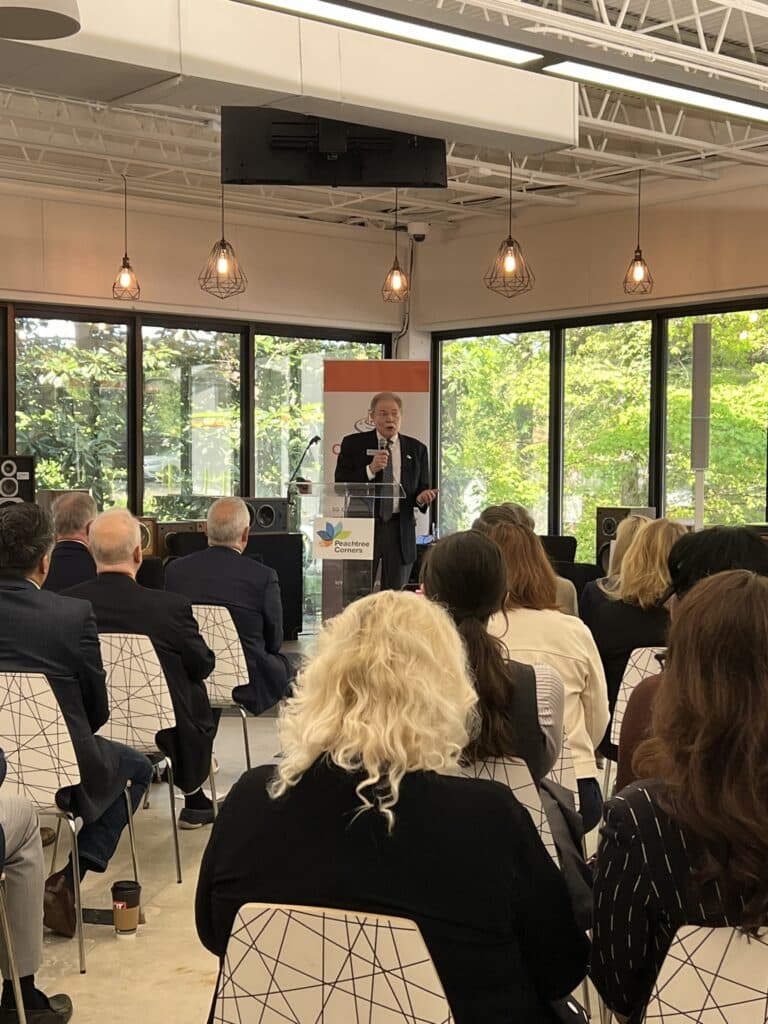
Answering his own rhetorical question, Cabrera announced another goal — Georgia Tech must have an impact on every county in the state.
“What if we developed in key locations across our state?” he asked. “Locations, rooms, spaces, buildings — it doesn’t have to be a big campus, but a space where entrepreneurs can come and receive the support that they need.”
He ended with a sharp gaze sweeping the room.
“This is the first one,” he said. “So to my dear colleagues, don’t screw it up.”
Impact on economic and workforce development
“This pro-business environment that we have is essential to Georgia’s success, and it’s why we’ve been named the number one state in the country for business for 11 consecutive years,” said Gov. Kemp. “But it also means we’re delivering real impact for the people of our state.”
During his time in office, Kemp said the state has announced 193,000 new jobs, and private sector partners have created more than $90 billion of investment.
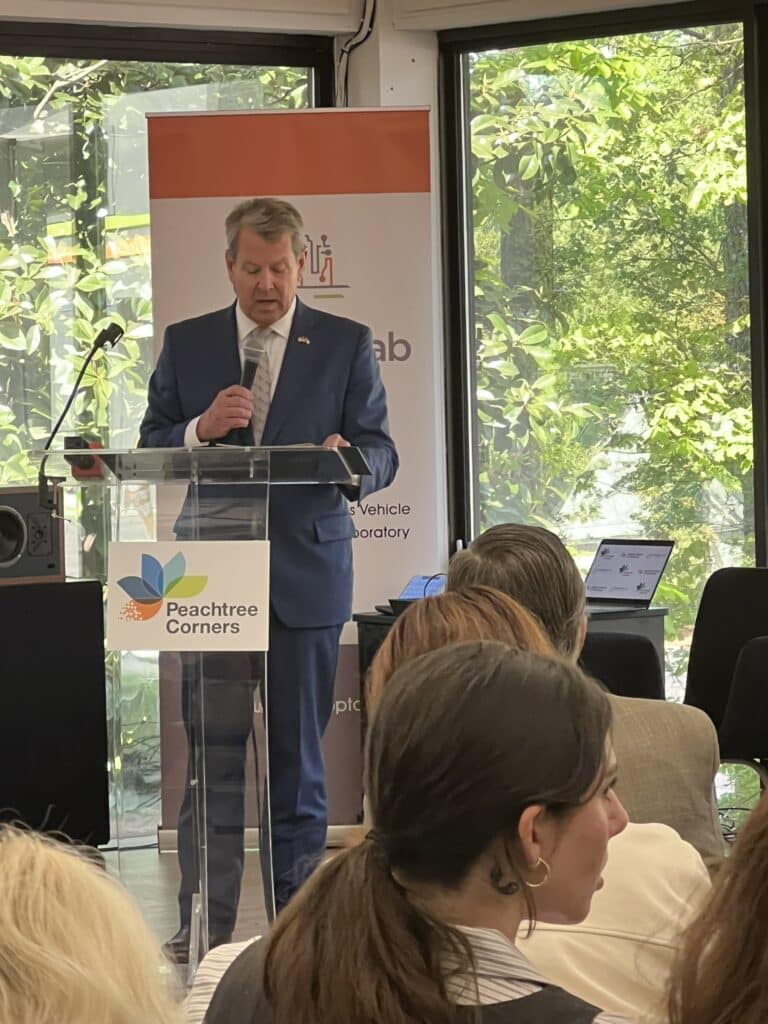
“These projects choose Georgia because they recognize the unique assets that our state can offer, including a talent base that is supported by institutions like Georgia Tech,” he said.
“Workforce development has been, and will continue to be, a top priority in my administration, after business leaders made it apparent that there was a great need for qualified workers to fill really thousands of jobs that are coming to our state, not only today, but many that will be created over the next four or five years.”
State leaders, including those at Georgia Tech, have taken great steps forward in efforts to build that workforce of tomorrow. Kemp referenced the Georgia Match program, the largest direct college admission program in the country.
“I was proud to report last fall that following the launch of Georgia Match, we saw an increase in enrollment of all our higher education institutions, including a 6% increase at USG (University System of Georgia) schools,” he said.
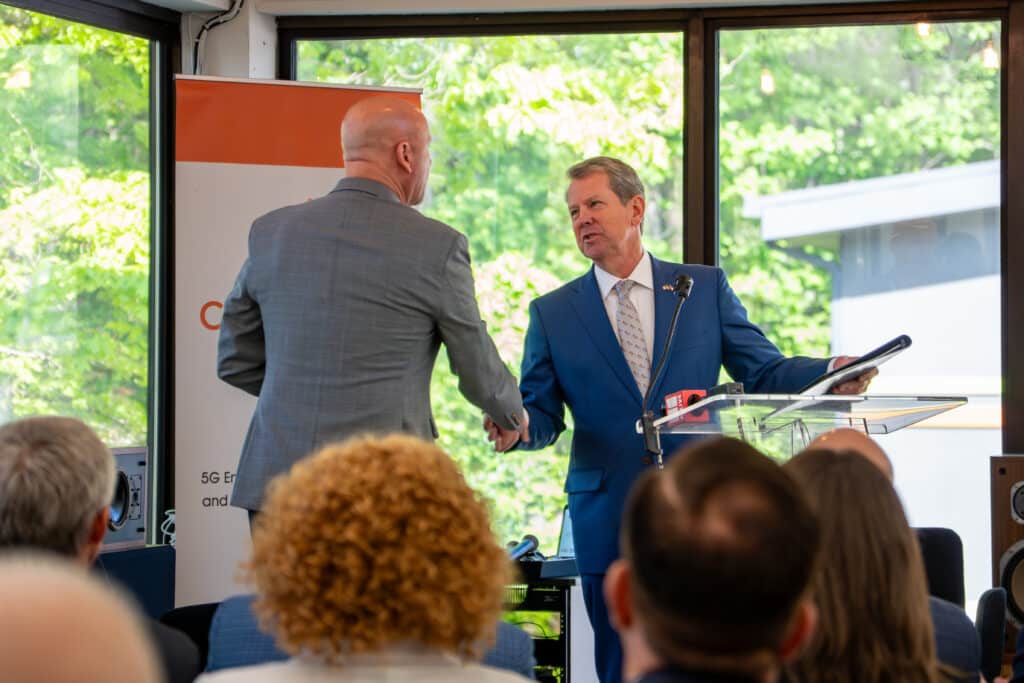
He also mentioned that the state legislature passed the Top State for Talent Act, which, he said, will better align K-12 and higher education curriculum with the needs of businesses in this state.
During the last fiscal year, technology and corporate hubs created at least 4,400 new jobs, including 400 at Cargill’s Atlanta office hub. Other announcements included insurance company AIG opening a new innovation hub in DeKalb County that can accommodate more than 1,000 employees and California-based TriNet announcing a 150,000-square-foot office in Dunwoody creating 750 new jobs.
“The Wall Street Journal recognized Georgia Tech as the second best public college in the nation, and top 10 amongst all higher education institutions,” Gov. Kemp said. “They specifically rated Tech high in the value it added to its graduate salaries in comparison to the cost of attending.”
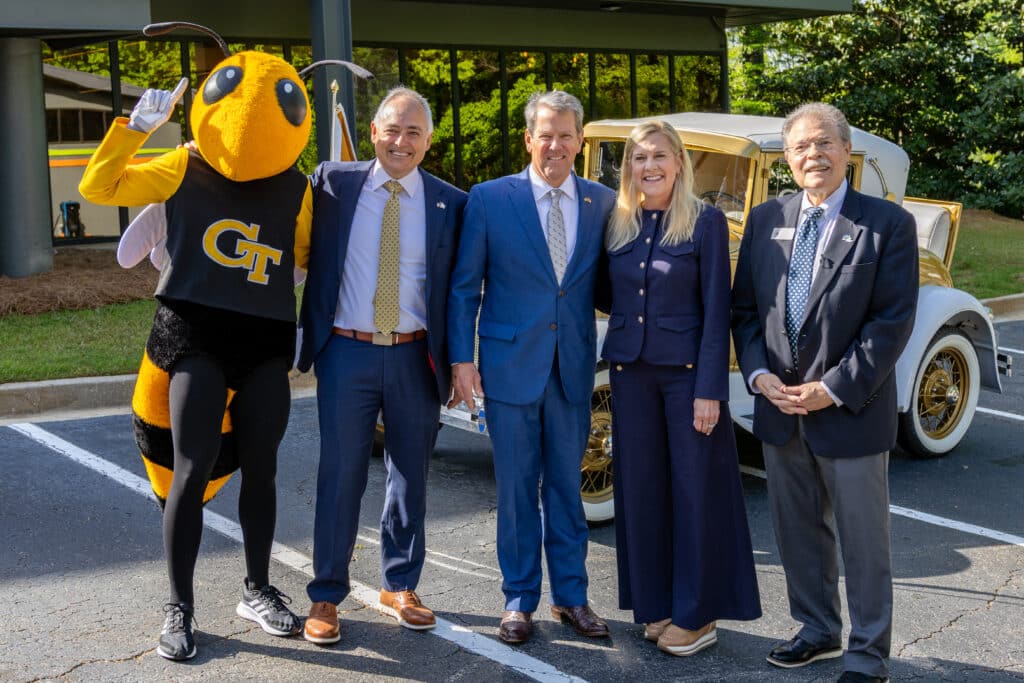
He closed by saying “We’re fortunate to have a team here in Georgia made up of government, business and educational leaders committed to working together to deliver results for our people. I want to again thank everyone here for your work and that mission, and say congratulations again on today’s milestone.”
About the GT Atrium
The Georgia Tech Atrium, developed and overseen by the Center for 21st Century Universities (C21U), the research arm of the College of Lifetime Learning, is a cornerstone for institutional development as delineated in the institute’s Strategic Plan for 2020-2030.
The GT Atrium is based on a multi-year study of the factors influencing higher education and how a modern university should adapt. Insights from this study and additional research conducted since the initiative’s inception have guided its vision and planning.
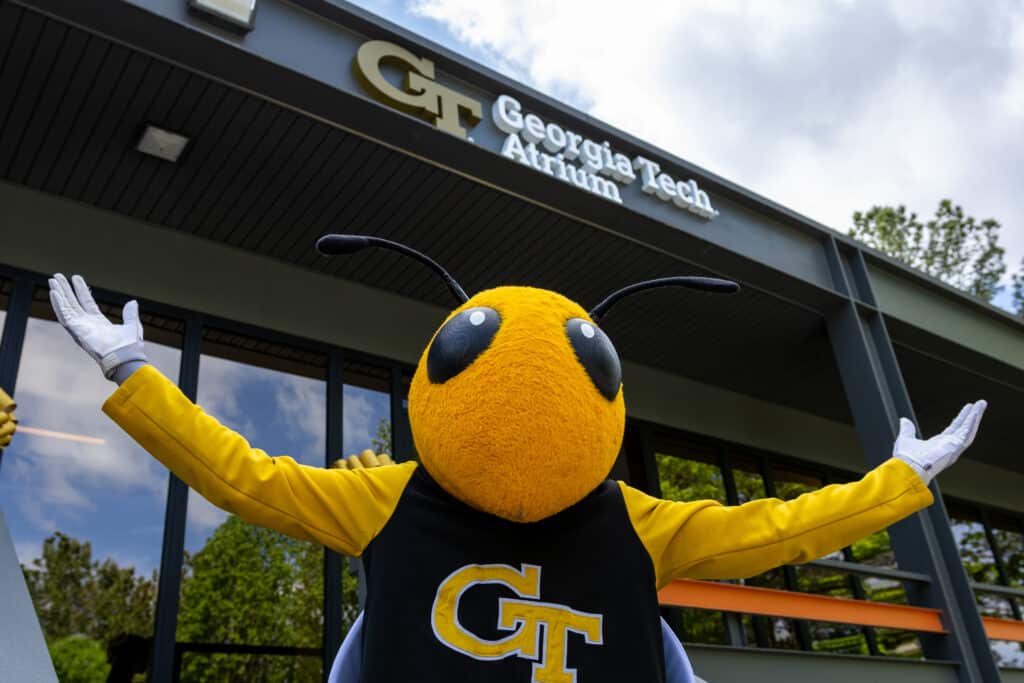
Hence, it has been designed to enhance the Georgia Tech experience by transcending the boundaries of conventional physical and digital classrooms by fostering learning opportunities that accommodate individuals across all stages of life.
Each Atrium location will be designed to reflect the surrounding culture and community, creating a vibrant environment for exploring new opportunities. GT Atrium promotes partnerships with local and international communities, strengthening collaborative relationships with individuals, government entities, neighborhoods and school systems.
While GT Atrium is best considered a platform for innovation, it currently comprises six core areas. These are:
- Co-learning spaces: Dedicated spaces to bring together Georgia Tech online learners with the broader institute network and expand the services offered to them.
- Advising: Customized services designed to guide stakeholders in the need for upskilling and reskilling as they navigate their evolving professional futures.
- Networking: Facilitate the online connection of the school’s students and alumni with the broader professional network of the Georgia Tech family.
- Lifetime learning: Targeted programs designed to enhance workforce development and positively impact local economies.
- English as a second language (ESL) programs: International (and some domestic) GT Atriums will feature a program run by the Georgia Tech Language Institute, designed to enhance the communication skills of non-native English speakers.
- Georgia Tech connection: A dedicated space for the institute’s faculty, staff and students to participate in events featuring Tech speakers and engage with alumni, local business leaders and other key stakeholders.
To learn more about the GT Atrium program, visit atrium.gatech.edu.
Related
Read the Digital Edition
Subscribe
Keep Up With Peachtree Corners News
Join our mailing list to receive the latest news and updates from our team.
You have Successfully Subscribed!

Peachtree Corners City Guide 2025: Spring/Summer Digital Edition

Two Peachtree Corners Business Leaders Named Finalists for EY Entrepreneur Award

GA Tech Launches First-of-its-Kind GT Atrium in Peachtree Corners

Katherine Lafourcade — A Journey of Passion, Resilience and Giving Back

PCBA Announces 2025 Scholarship Winner

Digital Edition

Paul Duke STEM High School Student Earns CGO Scholarship

World Blood Donor Day Starts Here: Theo’s Miracle, Katherine’s Mission [Podcast]

Peachtree Corners Grows Business Opportunities Through Economic Development

Digital Edition

World Blood Donor Day Starts Here: Theo’s Miracle, Katherine’s Mission [Podcast]

Paul Duke STEM High School Student Earns CGO Scholarship

PCBA Announces 2025 Scholarship Winner

Katherine Lafourcade — A Journey of Passion, Resilience and Giving Back

GA Tech Launches First-of-its-Kind GT Atrium in Peachtree Corners

Peachtree Corners City Guide 2025: Spring/Summer Digital Edition

Light up the Corners [Video]

Capitalist Sage: Business Leadership in Your Community [Podcast]

Cliff Bramble: A Culinary Adventure through Italy

Top 10 Brunch Places in Gwinnett County

A Hunger for Hospitality

THE CORNERS EPISODE 3 – BLAXICAN PART 1

Top 10 Indoor Things To Do This Winter

The ED Hour: What it takes to Remove Barriers from Education

Peachtree Corners Life
Topics and Categories
Trending
-
Digital Edition2 days ago
Digital Edition
-
Education4 days ago
Paul Duke STEM High School Student Earns CGO Scholarship
-
Podcast2 days ago
World Blood Donor Day Starts Here: Theo’s Miracle, Katherine’s Mission [Podcast]
-
Business4 hours ago
Peachtree Corners Grows Business Opportunities Through Economic Development




